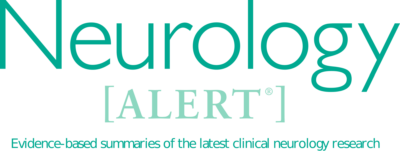
Neurology Alert – August 1, 2019
August 1, 2019
View Issues
-
Prevalence of Refractory Juvenile Myoclonic Epilepsy
Juvenile myoclonic epilepsy (JME) is a common form of generalized epilepsy. Although the prognosis of JME is not clear, it is assumed to have a good response to treatment. The authors of this meta-analysis found a higher than expected prevalence of refractoriness in JME, which will affect how neurologists counsel patients with JME.
-
Neuropathy After Total Knee Arthroplasty
In a large series of cases from the Mayo Clinic, 54 cases of new neuropathy occurred in 14,450 total knee arthroplasties. Most were isolated peroneal neuropathies. No specific risk factors were identified in this series.
-
Cognitive-Motor Dissociation in Patients Admitted to ICUs After Acute Brain Injuries
In a large, prospective, single-center study, more than one in six patients with acute brain injuries may have cognitive-motor dissociation (CMD) (e.g., they harbor capacity to modulate their brain activity in response to motor commands while remaining behaviorally unresponsive at the bedside). Some acute CMD patients were found to have a much higher chance for recovery of neurological functions and for reaching independent levels of activities of daily living by 12 months after brain injury.
-
Amyloid, Tau, Neurodegeneration Diagnostic Framework to Predict Memory Decline Before the Onset of Dementia
In a population-based longitudinal study of older individuals without dementia, the inclusion of imaging biomarkers for amyloid, tau, and neurodegeneration modestly improved the ability to predict memory decline compared to a model that only used clinical data and APOE genotype.
-
Carpal Tunnel Syndrome in the Extreme Elderly
Carpal tunnel syndrome (CTS), when seen in the very elderly, is usually severe and is not reliably diagnosed by ultrasound. Nerve conduction studies and electromyography are the most sensitive and specific tests to make accurate diagnosis of CTS.
-
Help Us Help You
